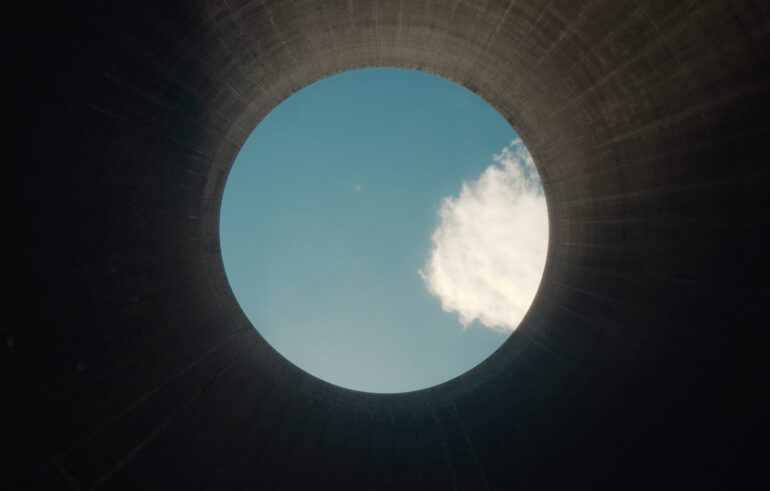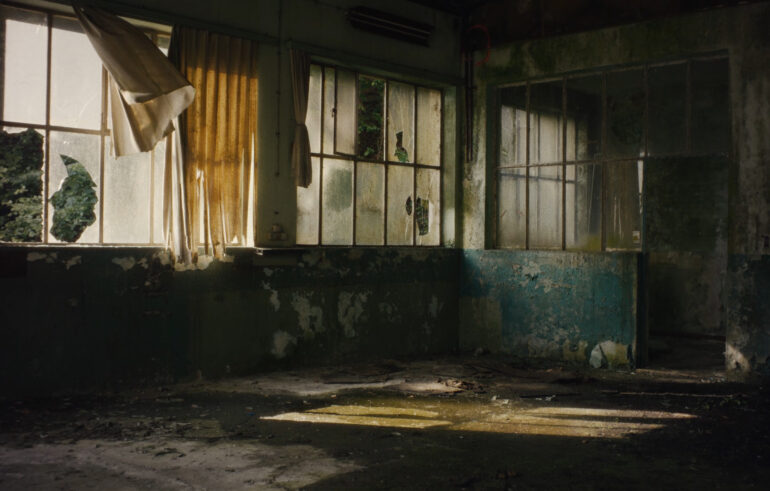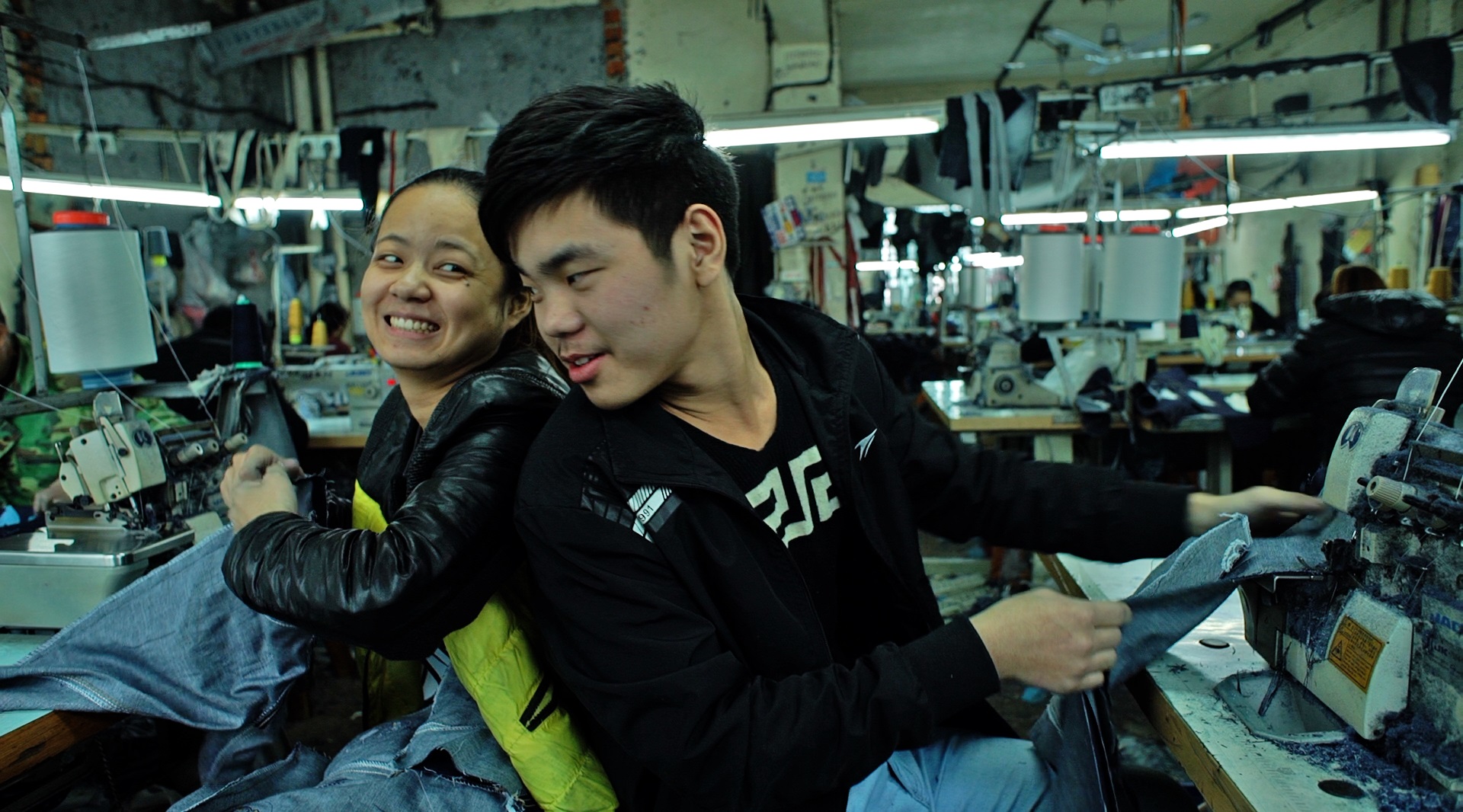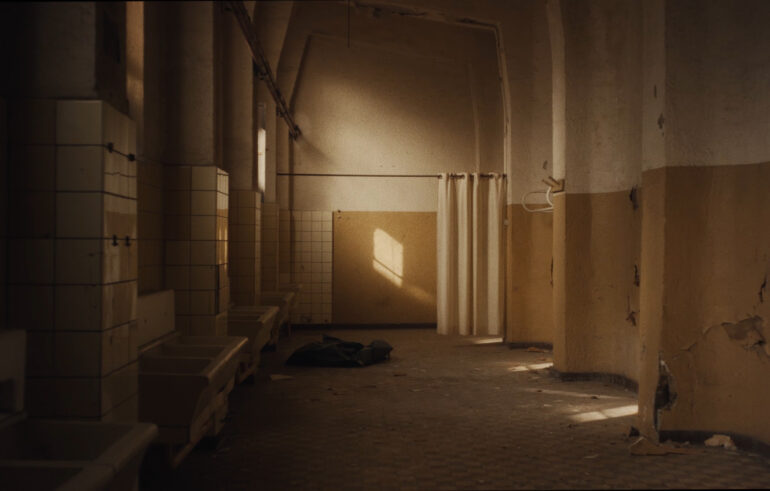
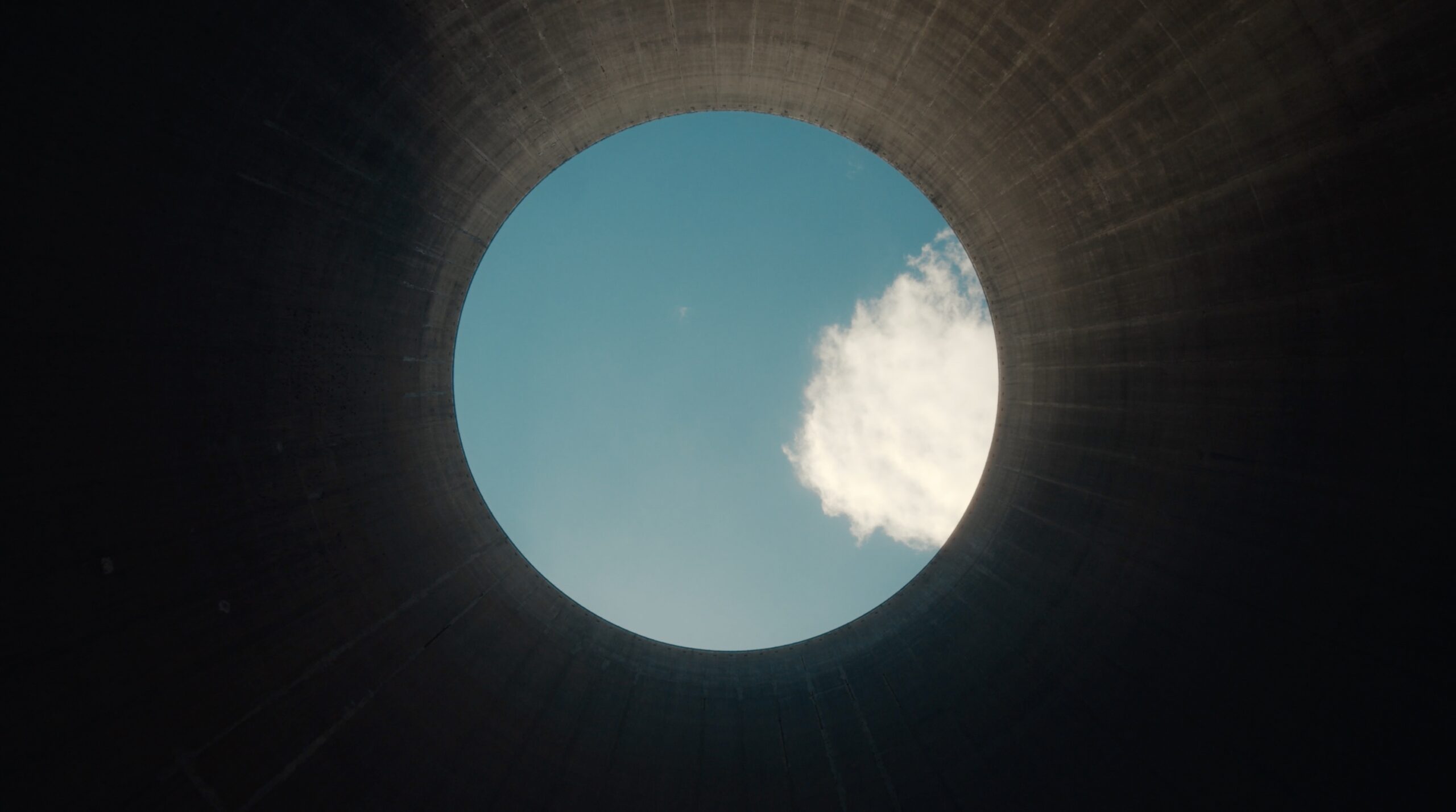
Glimmen
Synopsis
L’industrie sidérurgique a contribué à la prospérité du Luxembourg et a fortifié son économie. A la fin de cette ère, seuls des bâtiments colossaux et désertés, ainsi que des ouvriers marqués par des conditions de travail souvent rudes et dangereuses persistent. Il reste que, pour beaucoup d’entre eux, cet emploi représentait au quotidien une lueur d’espoir et de sécurité financière.Ce film reflète à travers les images et le son, l’ambiance qui règne dans ces usines à présent vides et abandonnées et documente grâce à des témoignages le déclin et la disparition des ouvriers industriels.
Growing up in the south of Luxembourg, the steel industry was something very familiar to me. Whenever I looked at these factory buildings scarred by the wear and tear of time, I wonder how it must have felt to stand inside of one of these behemoths. I wonder what it meant to work under such hellish conditions for countless hours exposed to fire, dust and heat.The steel industry had an enormous socio-economic impact on Luxembourg during the 20th century. Back then, the south was literally on fire as more and more blast furnaces were erected with ever-increasing capacities, resulting in a dramatic change in the Southern landscapes. In other words, nature was pushed aside in order to make way for an upcoming industrial era.At its peak, ARBED provided 25.000 jobs and generated one third of the gross domestic product. Phosphate, a side-product of the steel industry, was used to fertilize the dead soil in the North of the country, which transformed Luxembourg from a former peasant country into one of the most influential and richest countries in the world.At the end of the 20th century, most of the factories were downsized, outsourced or torn down due to the economic restructuring during the steel and oil crisis. However, thanks tomeasures taken by the government and ARBED, the workers didn’t lose their jobs. When the industry left, nature reclaimed its territory, and the South of Luxembourg was left with an exceptional and unique heritage.My childhood vision of the ARBED might be naive and romantic, but I can still vividly remember the sometimes ferocious sounds coming from the “Schmelz”. Even from a distance, I could hear the machines clashing and clanging, like giants struggling in an enormous fight. And whenever the sky suddenly turned reddish when they poured out the cinder (Schlaacken), we were told that Santa Claus was baking cookies. Over time, the stories about this world somehow became a collective memory: the memory of the South.The omnipresence of the steel industry triggered all your senses: you could constantly see it, smell it and hear it. The effects ranged from minor inconveniences all the way to life-changing situations. Cars, for example, used to be covered in dust from time to time. Accidents were common, and sometimes, people lost someone dear to them. In fact, from the end of the 19th century to the 1980s, approximately 14.000 miners lost their lives in the mines. The exact number is still unknown, and this estimate does not include the many workers who suffered comparatively minor injuries like losing a finger.Nowadays, most of the factories have fallen silent. Their raison d’être was rendered obsolete by progress, and thus they are now forgotten giants, relics from the past.
Scénario
- Ken Rischard
Image
- Simone Hart
Musique
- Angel Vassilev
Bande annonce et photos
Ken Rischard
Né et élevé dans une famille de musiciens, Ken a été attiré par la musique dès son plus jeune âge. Commençant par le piano et la guitare, il s’inscrit rapidement au conservatoire de musique de Luxembourg. Après avoir obtenu son diplôme de fin d’études secondaires, il a commencé ses études à l' »Universität für Musik und Darstellende Kunst » à Vienne où il a obtenu son diplôme avec son film documentaire « Glimmer » dans lequel il traite ses souvenirs de son enfance dans le sud industriel de la Grande Région.; Né et élevé dans une famille de musiciens, Ken a été attiré par la musique dès son plus jeune âge. Commençant par le piano et la guitare, il s’inscrit rapidement au conservatoire de musique de Luxembourg. Après avoir obtenu son diplôme de fin d’études secondaires, il a commencé ses études à l' »Universität für Musik und Darstellende Kunst » à Vienne où il a obtenu son diplôme avec son film documentaire « Glimmer » dans lequel il traite ses souvenirs de son enfance dans le sud industriel de la Grande Région.
